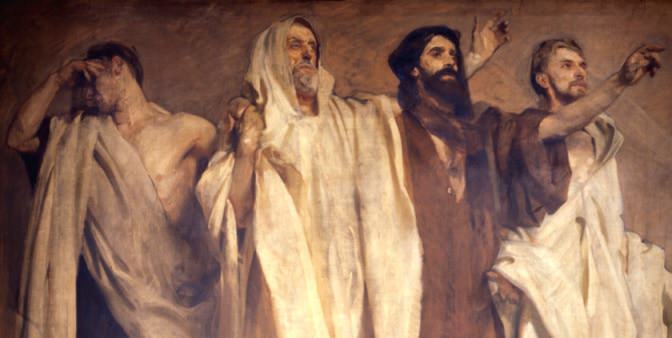
The book of Malachi
Malachi is the last book in the Hebrew Canon and in our Bibles. It can be placed after the rebuilding of the Temple by Zerubbabel (516 B.C) and before the arrival of Ezra in 458 B.C. It can also be dated some time after Nehemiah had left (445 B.C). Whenever it is dated, what is certain is that the people had become religiously cold and morally lax. They had heard the promises of restoration but now time had passed and disillusionment was the feeling of the time. God appeared to have abandoned his promise and Judah remained a small insignificant province in the Persian Empire.
The problems amongst the people that Malachi addresses are: mixed marriages (2:11-15); failure to tithe (3:8-10); no concern for the Sabbath (2:8-9); corrupt priests (1:6-2:9); and social problems (3:5). In a unique structure Malachi records the Lord’s words to the people. Malachi lists the problems as disputes that the people have with the Lord. He takes each one in turn describing God’s character, the people’s failure, and God’s solution.
Take for example (1:6-2:9). Introduction: God is father and master and you have defiled that. Question: How have we defiled you? Answer: you have placed lame animals on the altar.
The work pictures God as showing his great love for his people but questioning their love for him. He loves his people (2:1); He is their Father and master (1:6); their Father and creator (2:10); a just God (2:17); He does not change (3:6); and is totally honest (3:13), but they have failed to love him with the same enthusiasm. The book lists their behaviour that proves what God ‘suspects’.
Malachi ends, promising the Sun of righteousness will come with healing in his wings – a fitting end.
